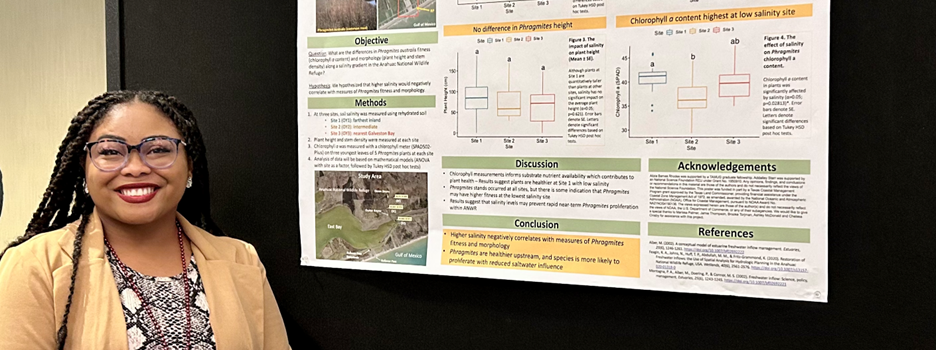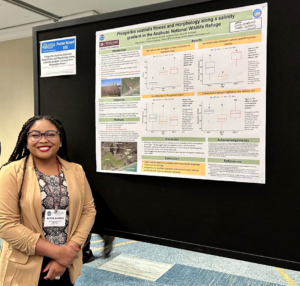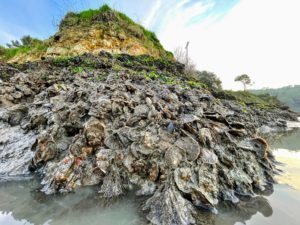
Scholars Share Experiences at 2022 RAE Coastal & Estuarine Summit
Gaining Experience, Networking Opportunities, and Connections at the 2022 Coastal & Estuarine Summit- The Summit Scholarship Experience
By Samaya Rubio
With tremendous support from our funders, the Island Foundation, Munson Foundation, and Ocean Foundation, RAE was able to support almost 50 early career professionals and students’ attendance at the 2022 RAE Coastal & Estuarine Summit.
One scholar, Alizia Barnes Rhodes noted that the summit “elevated my skills with networking, relaying scientific information, and growing within this field to alleviate anthropogenic changes to coastal and estuarine habitats” while giving her the platform to present her research on salinity levels’ effects on phragmites australis populations on the gulf of Texas.
this field to alleviate anthropogenic changes to coastal and estuarine habitats” while giving her the platform to present her research on salinity levels’ effects on phragmites australis populations on the gulf of Texas.
Scholars also participated in a wide range of concurrent sessions that “enlightened the audience of how improving estuaries is dependent upon understanding the various perspectives of the individual (developers, coastal homeowners, ecologists, etc.) and how public engagement success is dependent upon wording and delivery,” according to Emily Ott, a Master’s student at Nichols State University.
The scholars gleaned different things from the summit, like Marlene Friis, a Ph.D student at Tulane University, who studies the intersection of aging and climate change. Marle noted that after her experiences in concurrent sessions of the summit she “intend[s] to also include the impact of climate change mitigation efforts as they relate to aging,” in her research studying the intersection of aging and climate change. Others found new connections and feeling of community, like Shley Suarez-Burgos, a filmmaker from South Florida who wrote “I was able to meet other people who were my age, who looked like me, and who are also passionate in this sector” which helped to validate her choice to go into this field.
Various scholars participated virtually and found the flexibility of the virtual option to be an asset to their success, like Rebecca Andrews, a Master’s student at Texas A & M at Galveston studying Marine Resource Management. Rebecca said she “was able to watch the summit videos in between my class lectures, research hours, and studying,” and was able to connect with others who were attending online and in person.
The overall feeling of the summit was one of a lot of challenges to face but some optimism for the future as well. Mei Ling Valdes, a Master’s student studying Marine Biology at Texas A & M, noted “even though climate change and anthropogenic factors pose a complex and growing challenge, the collaboration that is occurring at local, regional, and national scales is empowering” Another graduate student at San Francisco State University studying Interdisciplinary Marine & Estuary Sciences, Allie Marguilles, summarized her experience finding collaboration at the summit by saying “while there are many commonalities in the work we are doing and the issues we face, being a part of this national community taught me about problems and restoration techniques that I was not previously aware of, but it also taught me how much we can help one another by sharing our experiences.”
The Summit scholarship program brought new and unique voices to the summit, and many recipients gained exposure to new ideas, networks, and individuals who will help them succeed in their research and work in our field.
